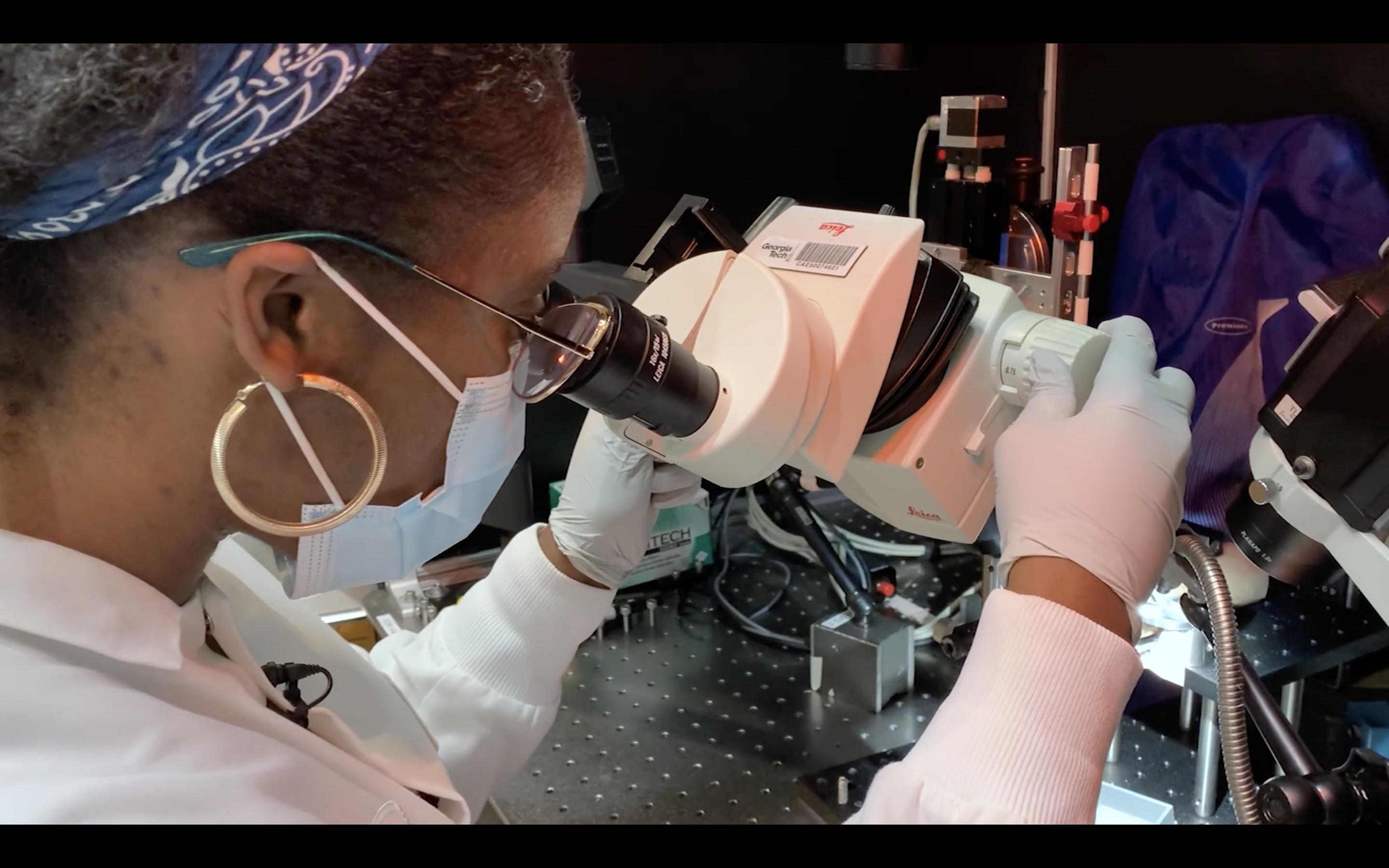The demand for graduate degrees from the Wallace H. Coulter Department of Biomedical Engineering is greater than ever this year: The Department has enrolled the largest classes of incoming Ph.D. and biomedical engineering master’s degree students in its history for Fall 2021.
“We are thrilled to welcome these record new classes to the Coulter BME family. As always, the students who applied for our graduate programs were an impressive and extremely well-qualified group,” said Machelle Pardue, interim Wallace H. Coulter Department Chair. “We know they’ll contribute their unique curiosity, insights, and perspectives to our vibrant community, and I’m looking forward to finding out how they will help us make impactful differences in patients’ lives.”
The Master of Science in Biomedical Engineering program is adding 34 new students to the one- or two-year program that prepares students for careers in biomedical engineering or further pursuit of a doctoral degree.
Meanwhile, the doctorate program will add 64 new students this year who are pursuing a joint Emory University-Georgia Tech Ph.D. in biomedical engineering; a unique Emory, Georgia Tech, and Peking University Ph.D.; or an interdisciplinary degree in bioengineering, robotics, machine learning, or bioinformatics.
“Over the last four or five years, our student population has been skyrocketing, our program remains one of the best in the nation, and our researchers are answering the most creative types of questions in open and collaborative spaces — you mix all of that together, and you get record class numbers,” said Manu Platt, associate chair for graduate studies and the leader of Coulter BME’s graduate admissions and recruiting efforts.
The record numbers are especially remarkable, Platt noted, given that students had to choose their graduate programs during a pandemic year when they couldn’t visit or engage with programs the way they typically would. He said that means students saw an environment that convinced them they would thrive and be prepared for any path they chose.
“I think the students sense the opportunities of our private-public partnership on both campuses and all of our faculty across multiple departments and schools and research interests,” he said. “We have everything here — anything you want to study, we have it. And if not, you can find two or three professors who will be interested in that area.”
Latest BME News
Jo honored for his impact on science and mentorship
The department rises to the top in biomedical engineering programs for undergraduate education.
Commercialization program in Coulter BME announces project teams who will receive support to get their research to market.
Courses in the Wallace H. Coulter Department of Biomedical Engineering are being reformatted to incorporate AI and machine learning so students are prepared for a data-driven biotech sector.
Influenced by her mother's journey in engineering, Sriya Surapaneni hopes to inspire other young women in the field.
Coulter BME Professor Earns Tenure, Eyes Future of Innovation in Health and Medicine
The grant will fund the development of cutting-edge technology that could detect colorectal cancer through a simple breath test
The surgical support device landed Coulter BME its 4th consecutive win for the College of Engineering competition.








